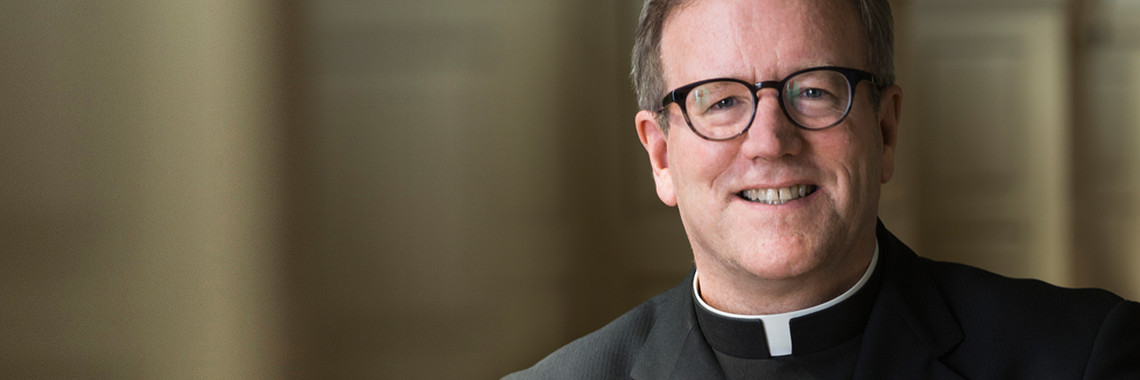The Church is missionary in its very nature. To be a disciple of Jesus Christ means to be a missionary. Therefore, the task of evangelization falls to every Christian from the pope to each and every layperson. Yet the task of evangelization falls to each differently, according to his role in the Church. Within the Church, bishops in union with the pope, and priests as their collaborators, have the primary responsibility in the ministry of evangelization (Evangelii nuntiandi, 68). Their task of evangelization centers on leadership of ministry within the Church. They do so through the pastoral care of the faithful, which includes preparing the faithful for, and encouraging and guiding them in, the faithful’s missionary responsibilities.
Religious also have a privileged role to play in evangelization (Evangelii nuntiandi, 69). Their lives are to be a witness to the pursuit of holiness and a witness to intimacy with God to Whom they have given themselves completely. They are witnesses of the radical nature of Christianity, a radically lived life of poverty, chastity and obedience. The layperson, as a disciple of Christ, also has an obligation to evangelize. Every layperson is obligated to witness to the truth of the Gospel with the entirety of his life. The role of the layman in the New Evangelization is irreplaceable because through the manifold ways lay persons participate in society, there is almost no place Catholic laypersons are not found. Laypersons can reach places clergy and religious cannot.
The twentieth century saw a resurgence of new ecclesial movements focused on lay participation in the work of the Gospel, and in the last 20 years or so, we have seen an explosion of laypersons working on the manifold aspects of evangelization. Yet there is no more important place for the New Evangelization than within the family (Evangelii nuntiandi, 70-71). The family, as the domestic church, is the first place of evangelization for children and the most effective place for imparting the faith with long lasting effect due to the formative influence parents have with their children, especially during the early years of their lives. However, Catholic laypersons are also found in political life at every level; they are found in the military and in government, in the business world, in the news media, in the various entertainment media, in education and in every neighborhood. Catholic laypersons must be formed in order to witness in deed and word in these various environments. They must also endeavor to promote Gospel values within public life for a society devoid of Gospel values will prove particularly resistant to evangelization.
Everyone must be aware of his responsibility in evangelization, particularly through the way he lives his life. If he understands his task and if he is faithful to it, he becomes a witness to the truth of the Gospel (Evangelii nuntiandi, 76). Perhaps the most important qualities of the evangelist, especially those who explicitly proclaim the Gospel, are those of authentic love, concern and respect for every person with whom he comes into contact, because everyone has a right to be evangelized for everyone is made for a continuing encounter of communion with Jesus Christ (Redemptoris missio 44). Those to be evangelized will first experience this encounter through the personal witness of one of Jesus’s disciples. Yet the evangelist must not forget that he is to be docile to the First Evangelizer, the Holy Spirit (Evangelii nuntiandi, 75, Redemptoris missio 30), the Spirit of Love and Communion.
There can be no evangelization without the Holy Spirit’s action in moving both the evangelizers and the evangelized (Evangelii nuntiandi, 75). The last three pontiffs have been urging us to prepare for a new Pentecost, that is, a renewal of the Church and society in the Holy Spirit. We must not lose sight of the place prayer and docility to the Holy Spirit took at Pentecost, and so it must be with the New Evangelization if it is to be the occasion for a new Pentecost. This new Pentecost will first be the action of the Holy Spirit, acting in men of good will. Prayer and striving for holiness is the first act of any evangelizer, that is, of every Christian. All of the preparation, strategizing, techniques, programs and tactics, as necessary as these are, will come to nothing without our docility to the gentle action of the Holy Spirit.
This work for holiness and docility in our encounters with others is a grave obligation, but at the same time, it is a great source of consolation. We must not let our zeal for the salvation of souls allow us to forget that we are merely instruments of the Holy Spirit’s action. In our encounters, such an orientation will ensure that we do not reduce the encounter to an attempt to make a convert. It will provide us with peace when we see little fruit for our efforts. It will help to remind us that we may be called by Christ to plant a seed, to water or to pull a weed. Every zealous disciple will want to be around for the harvest, but we must content ourselves with our fidelity in witness and not in the visible results achieved.

